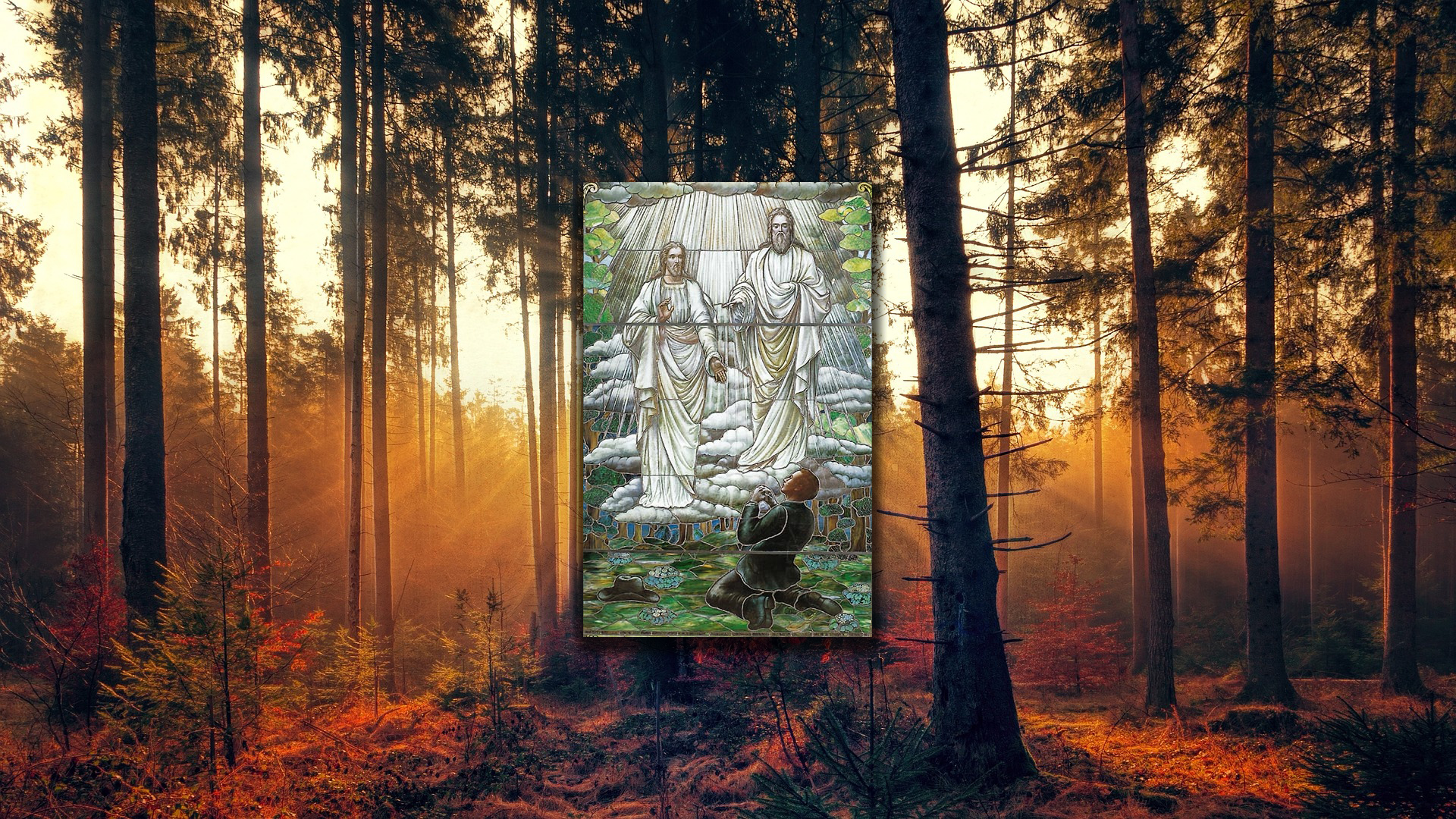Love and Lishmah
“I directed my soul unto her, and I found her in pureness: I have had my heart joined with her from the beginning, therefore shall I not be forsaken.” -Ecclesiasticus 51:20 KJV
Lishmah (לישמה), literally translated means “for her sake,” or “for her name.” In Kabbalah it is generally translated as “for its sake,” or “for its name.” “It” here refers to the study of the Torah, stating why we focus on the Torah and the Mitzvah—we study the Torah for the sake or our love of the Torah. However, this term, lishmah, may be used for anything we do for YHVH; thus it can also mean “for the Lord’s sake”.
As we practice lishmah we are in the Shekinah, the Presence of God; and we are the Shekinah, the congregation (Isaiah 54:5, 62:5; Matthew 25:1-46). This is why Heavenly Mother or the Divine Feminine, and the Congregation, the Church, or the Assembly of the Saints are both referred to as Shekinah: a feminine force representing the will to receive. But what does this have to do with love? Maybe everything.
Lo Here, and Lo There
“I was answered that I must join none of them, for they were all wrong, and the personage who addressed me said that all their creeds were an abomination in His sight: that those professors were all corrupt; He said: They draw near to me with their lips, but their hearts are far from me; they teach for doctrines the commandments of men: having a form of godliness, but they deny the power thereof.” -Avahr 6:33-36
When Joseph Smith Jr. walked into the grove to pray, after reading James 1:5, he had a miraculous experience. We do not know exactly what occurred, but we do know that he had a revelation. The different versions of this vision or revelation may be studied in Appendix 1 of the Book of Avahr. The thing they all have in common is that he was told not to join any of the denominations he had explored. Why not? And does this revelation mean that all churches were evil? And if they were, are they still today?
5 Ways We can be an Example for Our Children
“When Israel was a child, then I loved him, and called my son out of Egypt.” -Hosea 11:1
The greatest example was and is Jesus Christ. In the New Testament, when children were brought to Him to be blessed, his disciples try to turn the children away. The Savior rebukes them telling them saying: “Permit the little children and forbid them not to come unto me: for of such is the kingdom of heaven” (Matthew 19: 14).
A Contrite and Humble Spirit
Note: This article was originally posted June 20, 2020.
“For thus saith the high and lofty One that inhabiteth eternity, whose name is Holy; I dwell in the high and holy place, with him also that is of a contrite and humble spirit, to revive the spirit of the humble, and to revive the heart of the contrite ones.” -Isaiah 57:15
As we read the above scripture from Isaiah, we heard God tell us that He dwells with those who have a humble and contrite spirit. But, what does it mean to have a contrite spirit?
A Dream of a College Campus
While in Humansville, Missouri I had a dream from the Lord. In the dream, I was a young man entering college.
Why We Worship Together as Saints
“And Moses made haste, and bowed his head toward the earth, and worshiped.” -Exodus 34:8
Speaking to a friend recently, I was told that while she saw much value in the Church of Jesus Christ in Christian Fellowship as a place for those seeking a spiritual home, rejected by the world and the worldly, she didn’t understand many of the things we allow for or do. She called our observance of the Holy Days as found in the Torah to be “moon worship,” and called the tallit, robes of the priesthood, etc, “silly costumes.” She didn’t understand why we needed to do much more beyond accepting one another. She saw worship, classes, services, and the rest, as something silly from a long ago and forgotten time.
Gender Expression in Israelite Culture
One question I hear quite often is, why didn’t God mention the LGBTQ people in the scriptures? I would say that God did by treating them as actual people and not separating them out as we do in modern society. That said, it should be understood that we do have inclusive terminology dating back to Biblical times.
Entering the World of the Bible
With all this time on our hands because of the virus situation, rather than just sit around, I thought I’d take the time to do some reflecting on the deeper things in life. I’ve come to this conclusion—I want to think like Jesus and act like Jesus. Paul’s admonition is the longing of my heart, “Let this mind be in you which was also in Christ Jesus” (Philippians 2:5).
Love not Contention
“Contend against no church, save it be the church of the devil; take upon you the name of Christ, and speak the truth in soberness, and as many as repent, and are baptized in my name, which is Jesus Christ, and endure to the end, the same shall be saved.” -Doctrines of the Saints 12:35-36, Avahr 25:40
When we discuss differing opinions, it should be remembered that all are welcome to their beliefs in all matters. We cannot expect one’s beliefs to override the witnesses and testimonies another has received from God.  When one feels entitled to answers they come to the table with the spirit of antagonism. This is Ego, speaking in a Kabbalistic sense. It is a seeming entitlement to ‘rightness’ as the sole proprietorship of truth being displayed by Ego.
When one feels entitled to answers they come to the table with the spirit of antagonism. This is Ego, speaking in a Kabbalistic sense. It is a seeming entitlement to ‘rightness’ as the sole proprietorship of truth being displayed by Ego.
Praying to Know Truth
“Behold, I would exhort you that when ye shall read these things, if it be wisdom in God that ye should read them, that ye would remember how merciful the Lord hath been unto the children of men—from the creation of Adam even down until the time that ye shall receive these things—and ponder it in your hearts. And when ye shall receive these things, I would exhort you that ye would ask God, the eternal Father, in the name of Christ, if these things are not true; and if ye shall ask with a sincere heart, with real intent, having faith in Christ, he will manifest the truth of it unto you by the power of the Holy Ghost; and by the power of the Holy Ghost, ye may know the truth of all things.” -Moroni 10:3-5
The above quote is sometimes called “Moroni’s promise.” It is Moroni’s request that we go to God to see for ourselves if the Book of Mormon is truly the word of God. It is a big part of the restoration of all things, and the restoration of the Gospel of Jesus Christ, as it invites us to use the same gift of the Spirit that Joseph Smith Jr. used to translate the Book of Mormon—the spirit of prophecy and revelation.
Neum and Kabbalah
Behold, I am Neum, the Oracle, reader of the stars—I am she who pours out the libations for YHVH; I am she who still dances in prophecy when the daughters do sing, and the young men do play their harps and beat their drums.” -Neum 2:1-2 Neum is not a traditionally recognized Kabbalistic text in the sense of being a part of the core Kabbalistic literature like the Zohar, Sefer Yetzirah, or Bahir, but it certainly contains themes, imagery, and spiritual ideas that align closely with Kabbalistic principles. There are a few reasons why Neum can be seen as resonating with Kabbalistic thought, even if it isn’t classified as a Kabbalistic book. Let’s review a few of these reasons. The Mystical Relationship Between Israel and God One of the central motifs in Neum is the depiction of Israel as the bride of God, which is a key Kabbalistic concept. In Kabbalah, particularly in the writings of the Zohar, the relationship…
Kavanah in the Book of Mormon
“O all ye that are pure in heart, lift up your heads, and receive the pleasing word of God, and feast upon his love; for ye may, if your minds are firm forever.” -Jacob 2:50 [3:2]
The concept of Kavanah in Kabbalah refers to intentionality or spiritual focus during prayer, meditation, and other religious practices. It is often understood as the intention of the heart, the focus of one’s mind and soul on connecting with God, aligning one’s actions with divine will, and inviting the divine presence into one’s life. In Kabbalistic tradition, Kavanah is central to making religious acts spiritually meaningful, transforming routine religious observances into profound, mystical experiences.












